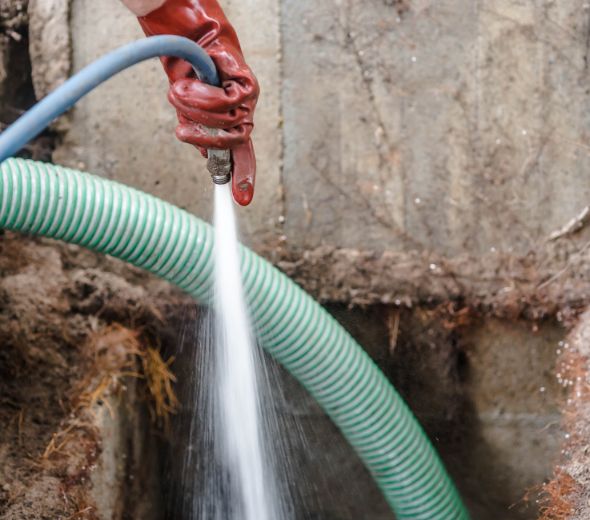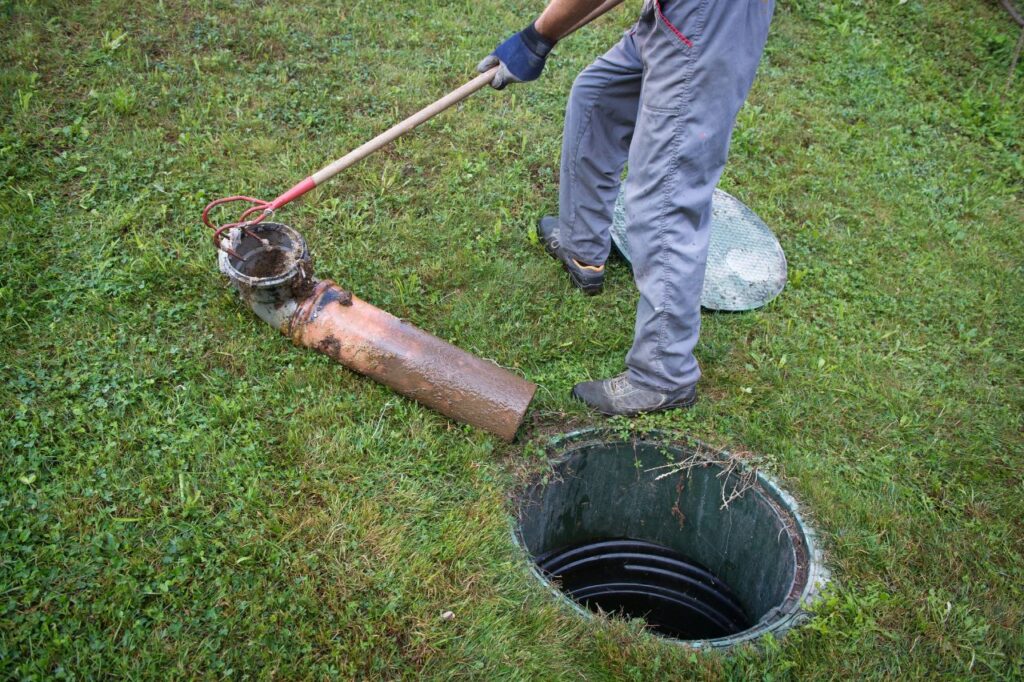A septic smell emanating from the bathroom can be an unpleasant and embarrassing problem. In this article, we’ll discuss some of the most common causes of this scent and provide practical solutions for getting rid of it.
Plumbing Leakage
Plumbing leakage can be one of the most common causes of a septic smell in the bathroom. This is usually due to a pipe that has been damaged, cracked or loose over time. A plumbing technician may need to be called in to properly diagnose and repair the problem. Seeping water can create damp patches, pooling moisture and condensation that can provide the ideal environment for bacteria growth, emitting an unpleasant odor.
Drains and Vent Issues
Another common cause for a septic smell in the bathroom is a blockage or clog in the drain, vent, or pipework. If a blockage occurs, it can trap and contain water which will begin to stagnate, causing bacteria to grow and multiply. If a clogged drain isn’t addressed quickly, mold bacteria and fungi can also start to accumulate, as this often thrives in humid bathrooms. It’s always important to check all drains are unblocked and check for any obvious signs of ‘weepers’ – visible cracks or damage to pipes the small leakage of water.
Poorly Functioning Septic Tank System
If a septic system is not working correctly, it will be unable to break down the waste properly and this can cause the bad odor. It’s therefore important to have your septic tank emptied regularly and inspected regularly. If you notice any signs of stains or high levels of moisture around your pipes and drains, this could also be an indication that there is a problem with the septic system.
Blockage in Sewer or Drain Line
Clogged pipes and drains are a common cause of septic odors in the bathroom. Over time food and other debris can build up in the drains and trap gases which can then create a sulfurous (sewage-like) smell. Cleaning your drain lines or having them cleared by a professional is usually the best way to tackle this issue.
Poor Tub/Shower Drain Maintenance
Poor maintenance of your tub or shower drain can also be a big contributor to septic smells in the bathroom. Shower curtains and bathmats should be washed frequently and drains should be cleaned regularly to help keep the smell away. Cleaning drains with baking soda, vinegar, and boiling water are some simple solutions that can help prevent potential clogs from accumulating and causing an unpleasant odor.

Overview of Septic Cleanings
Septic cleaning is an important part of homeownership, as it not only prevents expensive repairs but also keeps your septic system functioning properly and maintains the health of your family. An annual or bi-annual cleaning helps to remove built up debris in order to keep your system free from clogs and other leaks. During a cleaning, the professional team will pump out the septic tank, do any necessary repairs, and inspect for any further maintenance needs.
Signs You Need a Septic Tank Cleaning
Signs that you are due for a septic tank cleaning include slow flushing toilets, water backing up in the drains, gurgling sink or shower drains, unusually lush patches of grass around your drain field, and foul odors coming from your septic system. If you experience any of these signs, it’s a good idea to call a professional plumber to schedule an inspection and septic cleaning.
How Often to Drain and Pump a Septic Tank?
It is important to call a professional plumber to inspect and clean your septic tank regularly. Septic tanks should typically be cleaned every 3-5 years, although this timeline can vary depending on the size of your tank and the amount of waste you are disposing of through it. A professional plumbing technician will be able to provide a reliable timeline recommendation once they have completed an inspection of your system.
Benefits of Regular Septic System Maintenance
Regular septic system maintenance is essential for keeping your plumbing system running smoothly and protecting your home from possible damage caused by sewer backups. Cleaning your septic tank regularly can help ensure that it is operating correctly, prevent clogs, and save you money in the long run. Additionally, regular cleanings can help extend the life of your tank and prevent damage to drains, toilets, and other drain lines throughout your home.
Different Services Provided in a Septic Service Call
During a septic service call, technicians will use specialized tools and techniques to clear out the sludge and debris from your septic tank. They can also inspect the inside of your tank and check any valves or pipes connected to it for signs of wear or damage. Additionally, they can inspect and test the filter cartridges used to capture solid particles before they enter drain lines for better performance. Finally, technicians may be able to add biodegradable products designed to break down intermittent solids to help keep your system clear.

